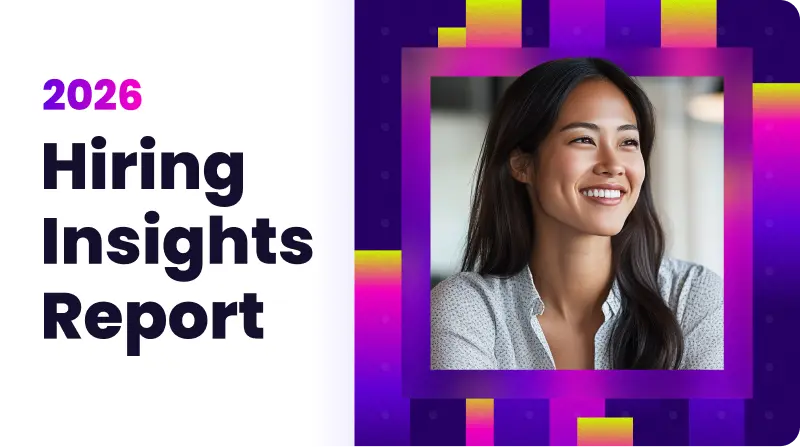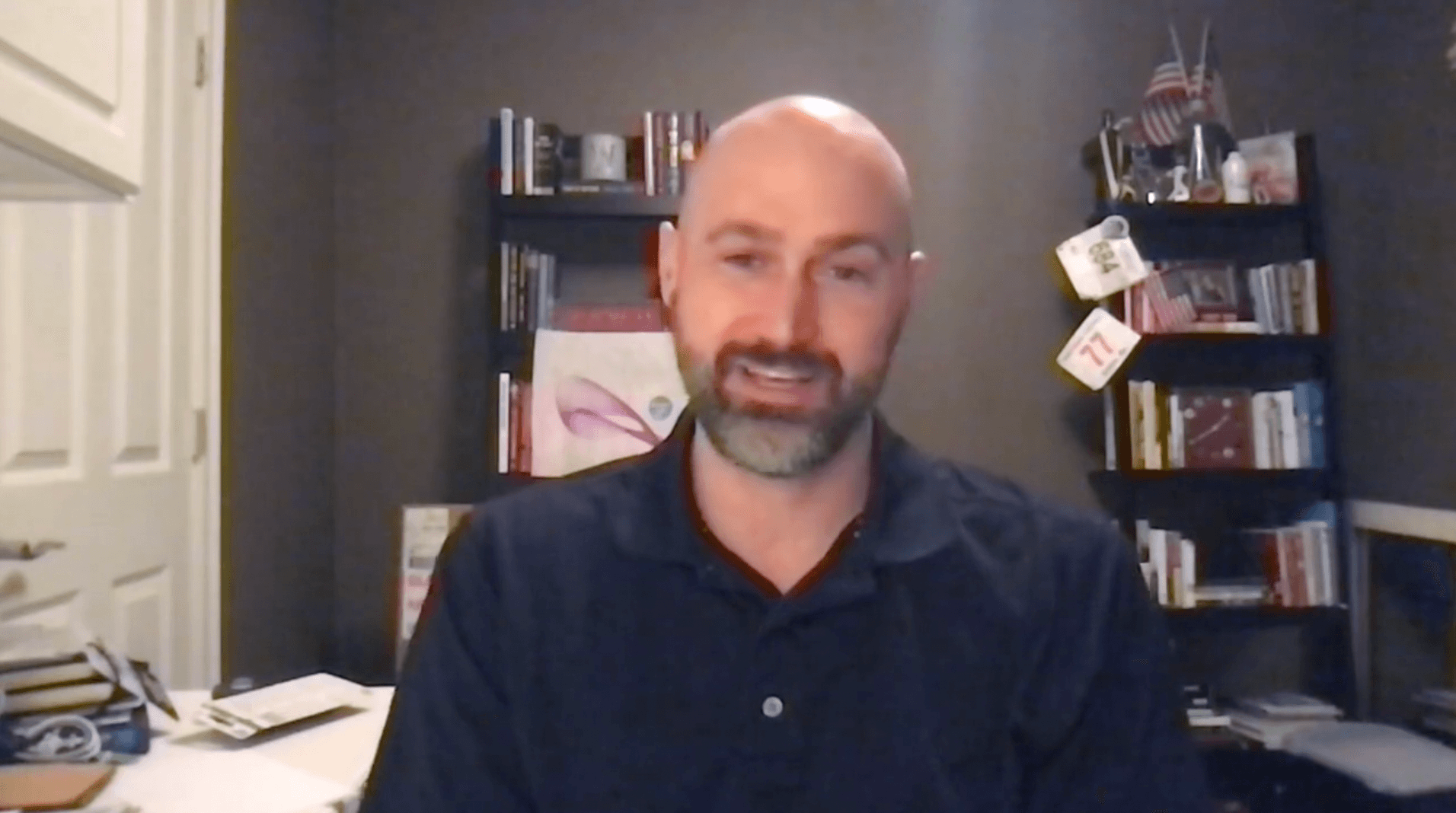Candidate experience has become one of the most important differentiators in hiring. For job seekers, the way they are treated throughout the process says more about a company than polished employer brand campaigns. In many ways, the experience is the brand.
And expectations have changed. Candidates now expect the same responsiveness and personalization they receive as consumers. They can track a delivery in real time, get instant updates from a rideshare app, and chat with customer support 24/7. When they apply for a job, they expect nothing less: fast responses, clear next steps, and communication that feels relevant to them.
Recruiting leaders understand this, but delivering on those expectations at scale is another matter. With leaner teams and heavier req loads, even the most candidate-first organizations struggle to keep up. The result is a widening gap between what candidates want and what most teams can realistically provide.
This is where AI agents are stepping in to improve candidate experience — not by replacing recruiters, but by filling the gaps that leave candidates waiting, wondering, or walking away.

Unlock 2026’s top hiring strategies: Insights from 500+ TA leaders
Be the first to uncover deep hiring insights specific to your sector — straight from the highest-performing TA teams.

How candidate expectations have evolved
A decade ago, candidates might have tolerated waiting a week for an email. Today, that same delay feels like rejection. Modern candidates expect:
- Responsiveness. A long silence after applying signals disinterest. Without timely updates, top candidates often move on to another offer.
- Personalized communication. Generic auto-replies are no longer enough. Candidates want outreach that reflects their role, stage in the process, and individual context.
- Clarity. Knowing what happens next, how to prepare, and when they will hear back reduces anxiety and builds trust.
These expectations are shaped by daily digital experiences. Ordering food, booking a flight, or streaming a show is instant and seamless. Candidates now expect their job search to feel just as smooth.
The reality gap for recruiting teams
Meeting these expectations consistently is where teams stumble. Recruiters spend a disproportionate amount of time juggling calendars, rescheduling interviews, and repeating answers to common candidate questions. Every hour spent on admin is an hour not spent connecting with people.
Global and high-volume hiring makes the challenge even harder. Time zones create unavoidable delays. A candidate may send a question in the middle of their workday but not receive an answer until a recruiter on the other side of the world is back online. High-volume recruiting compounds the issue — one recruiter managing hundreds of candidates cannot possibly keep everyone warm and engaged.
The outcome is familiar: candidates stuck in silence after applying, waiting days for an update, or left unprepared for interviews. Each of these moments chips away at trust and damages the employer brand.
Elaine Orler, SVP Consulting at Cielo, emphasized the importance of measuring candidate experience across multiple touchpoints, not just at the end of the hiring process:
“The ability to measure the candidate experience itself, at different touch points in the process can be incredibly valuable insight—especially around the more specific candidates that you might be trying to cultivate into your organization versus those that are just applying to the organization,” she told us. “We need to be more effective in the way we measure and then how we analyze that data and that information to drive better decisioning.”
How AI agents fill the candidate experience gap
AI agents offer a way to bridge the gap between rising candidate expectations and limited recruiter bandwidth. The best of these agents do more than respond to prompts. They act — proactively moving processes forward and ensuring candidates feel supported throughout the journey.
Here is how they help:
- Always-on communication. Candidates receive instant answers to FAQs and timely updates, even when recruiters are offline.
- Interview scheduling without delays. Agents coordinate interviews and reschedules instantly, removing frustrating back-and-forth.
- Guidance at every stage. From reminders and prep notes to post-interview follow-ups, candidates get the clarity they need.
- Consistency at scale. Every candidate feels acknowledged and informed, no matter how many reqs are open.
Without AI, candidates wait. With AI, candidates know. That difference is what builds confidence and keeps top talent engaged. Unlike basic chatbots that only react to inputs, modern AI agents are designed to act. They take initiative, stepping in to keep processes moving and to ensure no candidate feels overlooked.
AI agents, like those in GoodTime’s Orchestra, keep candidates engaged 24/7.
By filling these communication and coordination gaps, AI agents elevate the overall experience. Recruiters can then dedicate their time to meaningful human interactions, like building trust with top candidates or advising hiring managers, while knowing every candidate is still receiving care and attention.
Why always-on support matters most in global and high-volume hiring
For global organizations, candidates are often awake and asking questions when recruiters are offline. For high-volume hiring, recruiters are managing hundreds of applicants simultaneously. In both cases, coverage gaps are inevitable — unless AI agents step in.
With AI, candidates can get what they need in the moment: an immediate answer, an updated schedule, or a reassurance that their application is still moving forward. This kind of responsiveness prevents disengagement and shows candidates that their time is respected.
In high-volume environments, the benefits multiply. Agents can handle routine but essential touchpoints like confirming interview times, delivering reminders, troubleshooting tech issues, or rescheduling conflicts. What would overwhelm recruiters instead becomes a seamless experience for every candidate.
The impact goes beyond efficiency. Always-on support signals to candidates that the company values them as individuals, no matter where they are or how many others are in the pipeline.
Balancing automation with human touch at HubSpot
The fear that automation makes the hiring process feel less human is common. But leading companies like HubSpot prove that the opposite is true when automation is designed thoughtfully.
Becky McCullough, HubSpot’s VP of Talent Acquisition and Mobility, put it simply: “AI is going to play a key role in automating a lot of those repetitive tasks that can oftentimes slow down a talent acquisition team.” By freeing recruiters from reschedules and admin work, HubSpot’s team reclaimed time to focus on building genuine connections with candidates.
Since adopting GoodTime’s Orchestra, HubSpot has seen a 75% increase in team productivity, a 30% boost in scheduling speed, and a 152% increase in active interviewers across 15+ countries.
The numbers tell one story, but the experience tells another: “After implementing GoodTime, we’ve not only seen faster interview scheduling — we’ve seen happier candidates, happier interviewers, and a happier coordination team,” Becky said.
Jennifer Walker, HubSpot’s Global Talent Acquisition Coordination Manager, added: “We need automation, but also empathy. We want to be where those two things meet.” For HubSpot, that balance means candidates get timely, transparent updates, while recruiters have the bandwidth to engage in meaningful conversations.
This approach proves that automation does not erase the human element — it amplifies it. By eliminating repetitive work, AI creates more space for authentic human touchpoints. Candidates feel cared for, recruiters feel less burned out, and the overall experience becomes a competitive advantage.
“We need automation, but also empathy. We want to be where those two things meet.”
-Jennifer Walker, Global TA Coordination Manager, HubSpot
Orchestra: AI agents in action
GoodTime’s Orchestra illustrates how AI agents can act as a digital workforce that complements, rather than replaces, the recruiting team. Orchestra is not a single feature or chatbot. It is a coordinated set of agents designed to keep hiring fast, human, and in sync.
For candidates, Orchestra functions like a 24/7 concierge:
- Answering questions with company-specific information.
- Scheduling and rescheduling interviews instantly.
- Sending reminders and preparation resources so candidates feel confident.
- Gathering feedback after interviews to help teams continuously improve.
For recruiters, Orchestra removes the heavy administrative load. It screens applicants, surfaces top talent, manages scheduling, and flags bottlenecks — all while keeping the team in the loop. Recruiters still own the relationship and decision-making, but they can do so with more focus and less stress.
The result is a hiring journey where candidates feel supported every step of the way, and recruiters regain the time to deliver the personal touch that defines a strong employer brand.
Human-first AI as the future of candidate experience
Every unanswered question, every delayed update, and every scheduling hiccup leaves an impression on candidates. Those impressions add up, shaping how they view your company and whether they want to work there.
AI agents are not a replacement for recruiters. They are the safety net that ensures no candidate feels forgotten, and the partner that keeps hiring in sync. For candidates, this means a faster, clearer, more personal journey. For recruiters, it means peace of mind that every touchpoint is covered, even when bandwidth is stretched thin.
The future of candidate experience is not humans versus AI. It is humans and AI working together — delivering the responsiveness candidates expect while preserving the meaningful connections that make them feel valued.




